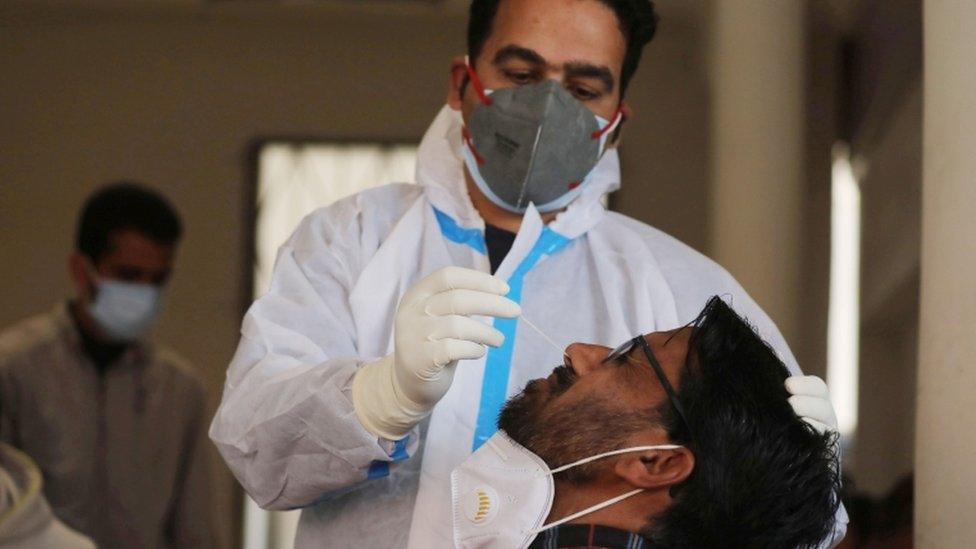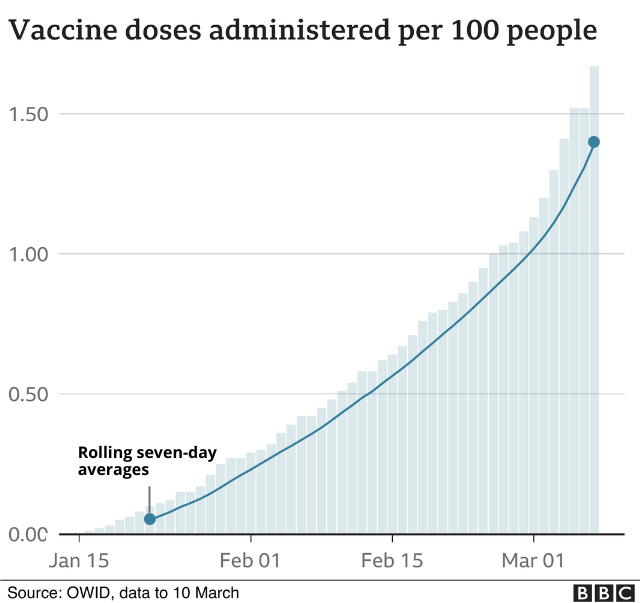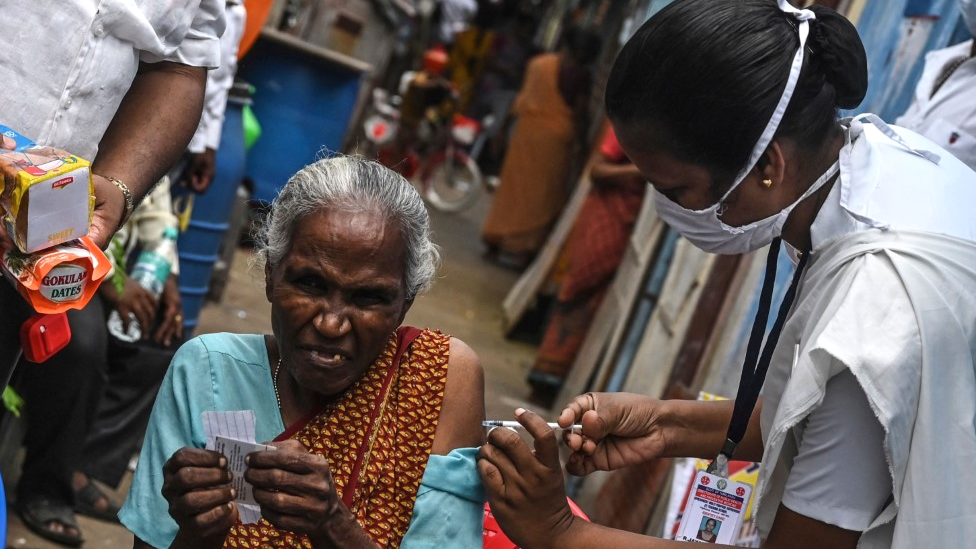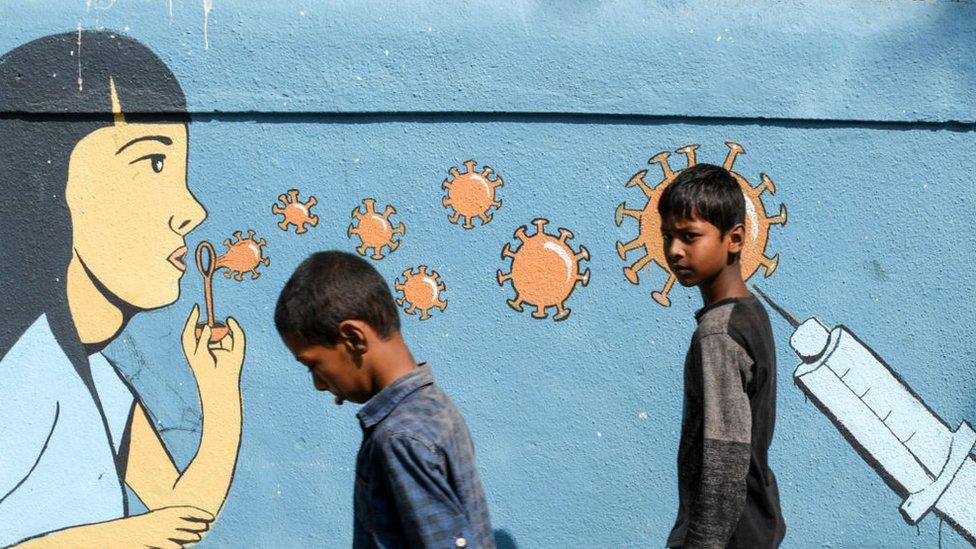Covid-19: Mumbai to roll out compulsory testing in crowded places
- Published

Coronavirus infections have been rising steadily across India for several weeks
The Indian city of Mumbai is to roll out mandatory coronavirus tests in crowded places as the country grapples with a rise in infections.
The local government said rapid tests would be done randomly in areas such as shopping centres and train stations.
A refusal to be tested will "amount to an offence", it said.
India recorded 40,953 new Covid cases on Saturday, the biggest daily jump for nearly four months. A total 159,000 people have died with the disease.
It has seen more than 11.5 million cases of coronavirus infections so far - and the number has been steadily climbing for weeks as the country scrambles to vaccinate its population and identify highly contagious variants of the disease.
In Mumbai, a coronavirus hotspot in the western state of Maharashtra, 2,982 people have contracted the disease in the past 24 hours.
How will the tests work?
The rapid tests will be mandatory in crowded places such as shopping centres and train stations from 22 March, city officials said.
The commissioner of the local authority told India Today that people should "be ready for the swab test", external whenever they enter a busy area in Mumbai.
The tests will be carried out for free - except those at shopping centres, where the costs will be covered by individuals.
Mumbai officials did not specify what action would be taken against those who refuse to have tests.
The local authority said it would use rapid antigen tests (RATs), a type of test that detects the presence of proteins unique to the coronavirus.
But research shows these tests are less reliable than other types and sometimes produce incorrect results.
What's the coronavirus situation in India?
India has recorded the third-highest number of infections, and the fourth-highest number of deaths, of any country in the world.
Infections started to dip at the start of 2021, but doctors have blamed a fresh wave on poor adherence to restrictions.


In recent weeks Maharashtra, which has long been a virus hotspot, has accounted for the majority of new infections.
Seven other states - including Kerala, Punjab, Karnataka, Gujarat, Tamil Nadu, Haryana and Madhya Pradesh - are also reporting a resurgence of Covid-19.
Some regions in India have brought back restrictions, including lockdowns and restaurant closures, while more are believed to be considering similar moves.

A clear and present danger

With the easing of restrictions and life returning to normal in the densely packed cities, Indians have been lax in following Covid-19 safety protocols.
But what is still unclear at the moment is whether new variants of the virus are responsible for the new infections.
Two variants are under investigation for possible links with the uptick in cases in a few states.
Much of the blame, however, should lie with the authorities, who many believe have been equally lax in enforcing Covid-19 measures.
The cricket board allowed tens of thousands of spectators, mostly unmasked, to pack a stadium for a match in western Ahmedabad city last week, even as infections were climbing.
Elsewhere, Covid-19 tests will reportedly not be required for thousands of pilgrims expected to take a holy dip at an upcoming Hindu religious festival in Uttarakhand state.
In this context, Prime Minister Narendra Modi's call for states to contain the spread of infections sounds disingenuous. There is a clear and present danger of India frittering away the "advantage" of bringing new infections down to lower levels in February.

How is the vaccination programme going?
The vaccination drive began in January in India, a country of more than 1.3 billion people.
More than 40 million people have received at least one dose of a Covid-19 vaccine so far.
The rollout is currently targeting elderly people and those with underlying health conditions, but it is expected to expand further soon.


The government aims to use up to 500 million doses to cover 250 million "priority people" by the end of July.
Although the pace of vaccination has picked up, experts say unless the drive is scaled up the target could be missed.
Prime Minister Modi, 70, received a dose on 1 March. After receiving the jab, he urged people to take the vaccine when their turn comes.

Read more about India's outbreak:
Health workers were the first in line to get Covid jabs

Related topics
- Published31 December 2021

- Published17 March 2021
